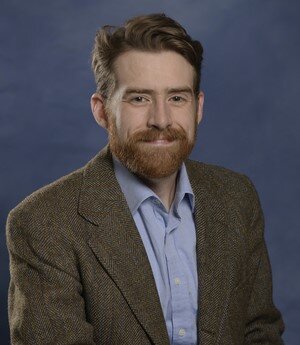
Contact Information
505 S. Goodwin Ave.
Urbana, IL 61801
Research Description
How do environmental stressors interact to affect bee health?
Dolezal is a broadly trained insect physiologist with interest in how environmental stressors interact to affect bee health. Pollinators, particularly honey bees and wild bees, are a critical element of healthy ecosystems and key players in agriculture. Dolezal’s research interests revolve around studying how ecological stressors, like nutrition, landscape composition/ecology, viral pathogens, and sublethal pesticide exposure interact to affect these pollinators. Working mostly in Midwestern agroecosystems dominated by row crop agriculture, his lab uses of a variety of approaches, including landscape ecology, ethology, physiology, and genomics to study these interactions and better understand how field-relevant stressors contribute to bee declines.
Education
PhD, 2012, Arizona State University
B.S., 2006, University of Illinois Urbana-Champaign
Awards and Honors
List of teachers ranked excellent by their students, 2019
Additional Campus Affiliations
Assistant Professor, Entomology
Affiliate, Carl R. Woese Institute for Genomic Biology
External Links
Recent Publications
Karlikow, M., Amalfitano, E., Yang, X., Doucet, J., Chapman, A., Mousavi, P. S., Homme, P., Sutyrina, P., Chan, W., Lemak, S., Yakunin, A. F., Dolezal, A. G., Kelley, S., Foster, L. J., Harpur, B. A., & Pardee, K. (2023). CRISPR-induced DNA reorganization for multiplexed nucleic acid detection. Nature communications, 14(1), Article 1505. https://doi.org/10.1038/s41467-023-36874-6
McCormick, E. C., Cohen, O. R., Dolezal, A. G., & Sadd, B. M. (2023). Consequences of microsporidian prior exposure for virus infection outcomes and bumble bee host health. Oecologia, 202(2), 325-335. https://doi.org/10.1007/s00442-023-05394-x
Zhang, G., Murray, C. J., St. Clair, A. L., Cass, R. P., Dolezal, A. G., Schulte, L. A., Toth, A. L., & O'Neal, M. E. (2023). Native vegetation embedded in landscapes dominated by corn and soybean improves honey bee health and productivity. Journal of Applied Ecology, 60(6), 1032-1043. https://doi.org/10.1111/1365-2664.14397
Cass, R. P., Hodgson, E. W., O'Neal, M. E., Toth, A. L., & Dolezal, A. G. (2022). Attitudes about Honey Bees and Pollinator-Friendly Practices: A Survey of Iowan Beekeepers, Farmers, and Landowners. Journal of Integrated Pest Management, 13(1), Article 30. https://doi.org/10.1093/jipm/pmac027
Clair, A. L. S., Beach, N. J., & Dolezal, A. G. (2022). Honey bee hive covers reduce food consumption and colony mortality during overwintering. PloS one, 17(4 April), Article e0266219. https://doi.org/10.1371/journal.pone.0266219